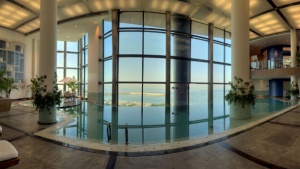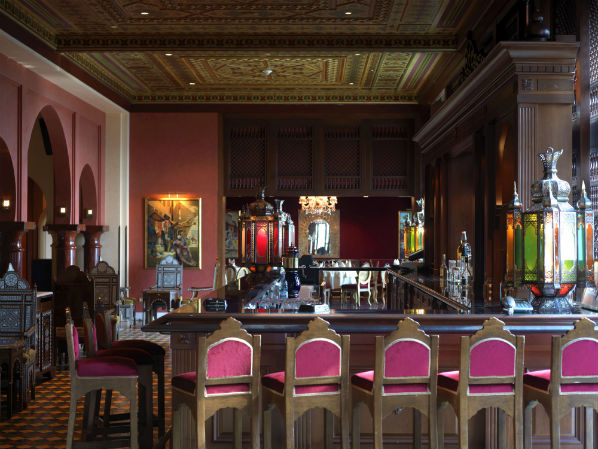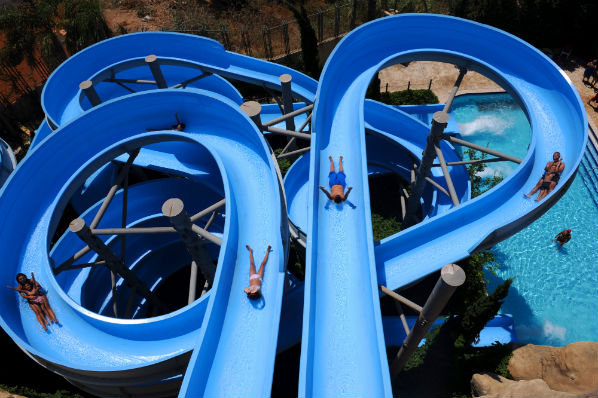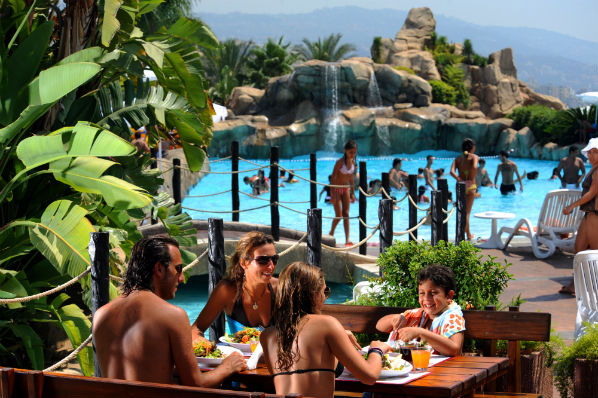ATM preview: Le Royal Hotel Beirut

On the eve of Arabian Travel Market, BTN spoke to Joyce Mouawad, Head of Sales & Marketing Director, Le Royal Hotels & Resorts – Beirut, about Lebanon’s renaissance as the French Riviera of the Middle East.
BTN: What are your expectations and participation at this year’s ATM?
JM: Our main priority is to present the true nature of Le Royal Hotels & Resorts – an intimate luxury chain of five properties in very special parts of the world, all with an incomparable level of service that has the warmth of Arabian hospitality at its backbone and the best of European management. From our highly-esteemed property in the heart of Luxembourg to Amman, Beirut, Hammamet and Tangier, every Le Royal is a unique component of our exotic chain.
An equally important objective is to set things straight with respect to the media. While parts of the Middle East are witnessing upheaval and rebirth, accompanied by an over-proportionate amount of media hype, many parts of the region are as safe as can be. For example, Lebanon has shed its troubled reputation of the past and we must make sure it is not being confused abroad with Libya (due to similarity in names) or Syria (due to proximity). Luckily, our clients are familiar with Lebanon and they take its internal political bantering as a sign of a healthy democratic nation. Once the rest of the world sees artists like Scorpions, Shakira, Placido Domingo and 30 Seconds flocking to the country this summer, they are bound to revel in its dynamism and safety. Overall, all our properties are in relatively stable areas of the world. Even Tunisia has come round full circle and our property in Hammamet is benefitting from its rebirth.

BTN: Can you tell us about Le Royal Hotels & Resorts – Beirut?
JM: Think of a luxury property overlooking the Mediterranean, then add special features such as the WaterGate Aqua Park, the 3-floor spa in partnership with Dr. Burgener of Switzerland and award-winning chefs that bring the best of Lebanese and local cuisine to the world. But behind the first-class facilities there are important intangible elements that make Le Royal Beirut what it is. Partly tradition, partly culture and partly training, the hotel staff knows how to cater to its guests. This is crucial in an environment with selective, demanding clients, making the difference between a good luxury property and a royally outstanding one. It also reflects the difference between a world chain and a personalized chain that can pre-empt clients’ needs more quickly through self-driven initiative and a true desire to make guests happy, rather than through stiff protocols and manuals.
BTN: You were voted “Beirut’s Leading Leisure Hotel” at 2010 World Travel Awards. Why do you think you won?
JM: This is mostly due to the personalized level of service explained previously. Suffice to say that our guests and tour operators have shown full confidence in us. Their vote is a direct reflection of the personalized service and the human component that permeates our property. Many properties offer luxury, but not many have the human component and Lebanese hospitality we are famed for.

BTN: What are some of the key growth areas in the Lebanon for 2011 – 2012? What opportunities will these create for potential investors?
JM: Lebanon has and always will attract investment. It is one huge construction site, a reborn Monte Carlo by the Eastern Mediterranean, with massive projects going all the way up to its mountain peaks. Stakeholders from Europe, North America and the Arab World have invested heavily in the area – from five-star hotels to service industries – meaning that the future of the country is quite rosy economically. This is enhanced by a strong banking sector and banking secrecy.
The trend now is to move beyond Beirut which is saturated, although Downtown Beirut is also witnessing reinvigoration thanks to the new souks and projects. There’s always room for more in this small country that’s both a business hub and playground for three continents.
BTN: What will be the main challenges for the Lebanon over the next 12 months and in what ways are you addressing these?
JM: As the media exceedingly flouts the idea of an “Arab Spring” with scenes of rebellion in different Arab countries, it is important for Lebanon to communicate its stability and position itself as a niche tourism destination that is not affected by these challenges. Being a pluralistic democracy, Lebanon does not suffer from the same issues, and we want to make sure that the message gets out.

BTN: What are your long term and short term goals?
We believe that there are no short-term goals in the hospitality industry. Everything must be done for the long term. There are no quick fixes, but long-term investments such as employee training, retention programmes, expansion plans, etc. As a hotel management company with the advantage of personalized luxury, we are looking to grow to new areas, not necessarily classic destinations but ones where we know we can excel and where we have a competitive advantage over others. For example, our next hotel project is in Erbil, arguably Iraq’s most stable city and one in need of a luxury property due to current heavy investment and projects in the region.
Our confidence in Lebanon has also encouraged us to create an outstanding marina complex by the sea that will be connected to our Beirut property via a series of cable cars. This is a very enterprising project and the planning stages have already been completed. We are now finalising the project before actual building starts.
BTN: What are your predictions for travel and tourism trends in the Middle East over the next five years?
JM: Considering the geopolitical situation of the region right now, it is very difficult to predict how things will be in five months, let alone five years. That said, countries like the UAE and Lebanon seem to be quite stable. Also, the Middle East has always had its fair share of differences and post-colonial growing pains, but that hasn’t stopped the region from reinventing itself. Overall, we remain confident that despite current upheaval there will be a different, more vibrant and more attractive Middle East five years down that road. It may not always be an ideal mass market destination, but for adventure seekers and niche travellers who are looking for much more than sun, sea and sand, the region represents the ultimate destination.
To find out more about Le Royal Hotels & Resorts – Beirut visit www.leroyalbeirut.com

